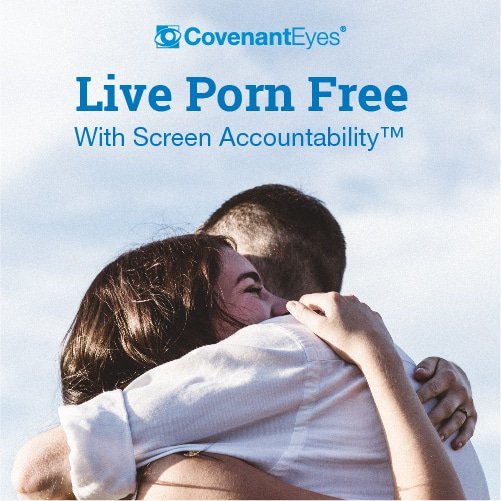Sheila Wray Gregoire's Blog, page 76
August 26, 2019
Should This Wife Have to Be Sexier? I’m Asking YOU!
I need your help to figure out how to help this woman who wants to be sexier.
I can’t do it myself, because Saturday, I did this:

I was cutting an onion to make dinner when Connor and Rebecca came back to town for the weekend and after the first slice thought, “Wow, this knife is really dull. I should probably get a better knife, this could be dangerous. But the better knife is in the dishwasher and would require being washed. Eh, this is fine.” And the second slice sent me to the ER.
Anyway, I’m just frustrated with myself because I had that whole sequence of thoughts and still used the freaking knife and now I can’t type (in fact, I am dictating this and Rebecca is typing it out and laughing at me and inserting some creative liberties). So I was going to answer this reader question today. But instead, since I can’t type, I want to give you the chance to give some thoughts! Here’s the question:
I’ve been married for a few months. My husband and I were both virgins on our wedding night. We both adore each other and the friendship aspect of our marriage couldn’t be better! In fact, the romance couldn’t be better. My husband is very physically affectionate, caring, and sweet with me. But when it comes to sex, I’m very interested in lovemaking all the time but he often would rather do anything else. (No history of porn use or molestation.) It is really painful to get turned down, especially since I thought I was giving him a wonderful gift that most husbands would love to receive! Finally the other day he let me know very kindly that it would really help him if I learned how to be sexy. He said, “I know you’ve spent your whole life in the purity culture learning NOT to be sexy.” and he’s right. I don’t know how! He mentioned that some girls with the way they act and carry themselves can make every man in the room want them. But what are they doing? Can you help me? I love my husband dearly and I know he loves me, but I don’t know how to turn him on. I’m willing to learn!
I think there are two separate issues here: First, her later question about how to be sexy is a perfect legitimate question that many people will have, and I’m actually planning on making our entire weekly challenge based on that question tomorrow. So if you have ideas/tips, leave comments about that, too! However, and Connor, Becca and I have been talking we also see a red flag with the first half of the question. Here’s our line of thinking:
He’s a young guy who was a virgin at the wedding and less than 6 months in doesn’t seem excited about sex anymore. However, it’s not that he says he has low libido, he says it’s that she’s not sexy enough. That, to us, is strange.
He’s comparing her to other women which makes us think that even if there is no porn use in his history, there’s definitely something wrong with how he’s talking about sex with his wife which likely means there’s something off in how he’s seeing sex.
It also may be that he has an image of sex and sexiness that involves feeling pursued–some women have a very flirty aura, they walk in and they give off the impression that, “I want you,” and it may be that he has this idea/fantasy in his head that that’s how sex is supposed to play out all the time in marriage, too. There’s nothing inherently wrong in wanting to be pursued. And so we’re also wondering, is he pursuing her? Or is he expecting a one-sided sexual relationship?
Although it doesn’t sound like it from the letter, it also may be that she truly is asking for sex in a way that is turning him off. Maybe when initiating, she acts younger in an attempt to be funny, silly or cute and he gets freaked out because it feels a bit like he’s talking to a teenager (and not wanting to have sex with a teenager is a very good thing!). I think if that’s the case he likely would have phrased it more as “When you ask for sex this way, I get uncomfortable” rather than “Other women are sexy and you need to learn from them,” but we thought it was an important point to consider.
Finally, we were wondering if within this marriage, maybe this husband is simply more of a submissive type and wants to be the submissive one in the sexual relationship and doesn’t feel like she’s being dominant enough. Maybe to him, she’s not coming on strong enough when it comes to sex. Maybe they need to talk about what mutual sex looks like and honestly, I’d just recommend 31 Days to them because I really did write it to help couples who were in these weird communication breakdowns around sex. And hey–the online version is only $4.99 right now but it will be going up in price in 2020 because I just sold it to Zondervan! So get it now if you’ve been putting it off!
Need an easier way to have these conversations?

31 Days to Great Sex guides you through exercises so that you can talk about libido, frequency, intimacy, in a low-stress, easy way.
No blaming. Just solutions–and a whole lot of fun!
Let's try it!
So those are our thoughts in a nutshell. What are yours? Let us know in the comments!
Author
Social Media
Sheila's Best Posts
Books
Courses
Freebie
 Sheila Wray Gregoire has been married for 27 years and happily married for 22! She loves traveling around North America with her hubby in their RV, giving her signature "Girl Talk" about sex and marriage. And she's written 8 books. About sex and marriage. See a theme here? Plus she knits. Even in line at the grocery store.
Sheila Wray Gregoire has been married for 27 years and happily married for 22! She loves traveling around North America with her hubby in their RV, giving her signature "Girl Talk" about sex and marriage. And she's written 8 books. About sex and marriage. See a theme here? Plus she knits. Even in line at the grocery store. Find Sheila Here:
Find Sheila Here:YouTube
Sheila's Favorite Posts on To Love, Honor and Vacuum:
10 ways to initiate sex
10 Effects of Porn on Your Brain, Marriage, & Sex Life
Why So Much Marriage Advice is So Trite
How can Sex be Hot and Holy at the Same Time?
Check out some of Sheila's Books:
The Good Girl's Guide to Great Sex
31 Days to Great Sex
9 Thoughts That Can Change Your Marriage
To Love, Honor, and Vacuum
Check out Sheila's Courses:
The Boost Your Libido Course
The Whole Story: Talking to Your Daughter about Sex, Puberty, and Growing Up
The FREE Emotional Intimacy E-Course
Are you ready to take your marriage to the next level?
Sign up for our emails and get access to the TLHV free marriage and parenting resource library. We have over 25 downloads and are constantly adding more. Sign up here!
Other Posts in our “Husband Doesn’t Want to Make Love” Series:

Why Doesn’t My Husband Want to Make Love?

Communicating Your Needs When Your Husband Doesn’t Want Sex
August 23, 2019
How Betrayal Trauma Therapy Can Help Wives of Porn Addicts
When you catch your husband using porn, what kind of therapy is most likely to help?
I know so many people wind up at this blog because of trauma in their marriages, especially a husband’s porn use (and it’s usually the husband, although many women struggle with porn, too.) But as I’ve been talking about on the blog this year, sometimes the counseling we receive isn’t the most helpful. Recently, in the comments section after our kerfuffle about whether or not a wife could be blamed for her husband’s affair, Lori Pyatt and her husband Jay left some great comments. In talking about the book How God Used the Other Woman (which said that healing from your husband’s affair required seeing your own role in it), Lori commented with this:
I haven’t read the book, so it could be that the title is just a way to grab attention to sell more books, but if the message of the book is that the spouse of the cheater is at fault, hmmm…
To me, this could be extended to the line of thinking that says, “If your adult child sins in a way that really harms others, it’s your fault as parents.”
To which I always think, “But if God is that kid’s parent too, does this mean God’s at fault?”
Of course not. But right along with the spouse who got cheated on, He is the cheater’s spouse too.
If the message of the book is solidly that the one cheated on is to blame in most cases, that’s called the Codependent Model.
And the Codependent Model flies in the face of the Betrayal Trauma Model. (Which in my experience is light-years quicker than the “codependent” approach in healing the spouse/couple after betrayal… we’re talking months compared to decades!)
If that’s the approach the book uses, I’m concerned it would do what’s called, “Treatment Induced Trauma” to those who trust Focus on the Family [who published the book].
It also begs the question: Could it serve as a green-light to those who are, like my husband was, ‘an affair waiting to happen’?
Personally, early after my husband confessed to his near-affairs, I felt tremendous GUILT.
But instead of allowing that to keep me frozen this time around, I brought that mindset to God… several times.
What I heard in response:
‘Everyone has to account for their own sin.’
I thought that was so interesting, so I invited Lori to join us today to explain why some therapy frameworks are better than others:
A woman’s husband had a secret porn addiction, so she gets rid of his smartphone to help him in his sobriety.
Another woman checks her husband’s email after she found out he cheated on her.
A third woman changes the bank account password because her husband was sneaking around with prostitutes again.
These situations share some things in common.
They all involve husbands violating the marriage covenant. They all involve some form of lying.
And they all can be healed. But from what I’ve seen, the usual approach to healing isn’t always that effective.
Before we start: A word about betrayal
If you’ve been betrayed, I first want to say I really wish that hadn’t happened to you. It can be completely devastating, and my heart goes out to you as I write this. Betrayal can cause understandable triggers, so if at any time you feel judged by this article, please read the ***Disclaimer*** at the bottom.
For now just know I write from the standpoint where the man has betrayed the woman because that’s what happened to the ladies I help… and because it’s what happened in my own marriage.
Personally: How I experienced the betrayal of a husband’s porn use
My husband, Jay, told me he was fighting his porn addiction and his desire for other women… then he lied to me every night for four years. He was so good at lying, I started congratulating him on his sobriety.
After he confessed, my days became a blur of confusion, anger, and gut-wrenching pain. My marriage was a smoldering heap of ruins—smoking ashes where I thought it once stood. If he’d told me he wanted to continue pursuing porn and other women, I’d have had to make a decision. But he never said that.
And while he seemed sincere about wanting to repair the damage, he’d also blame-shift and explode, so knowing what to do was unclear.
One thing is clear: I used one approach for fifteen years, but what healed me was another.
Two Approaches to Dealing with Betrayal in Marriage
I know of two frameworks to help women after betrayal: the Codependent Approach and the Betrayal Trauma Approach.
The Codependent approach is used in 12-Step groups and many counseling offices, and in certain contexts it works. It can help relationships with co-workers, parents, in-laws, siblings, and friends by:
Allowing us to set boundaries and adopt new roles in relationships.
Showing us we can do something about painful situations.
But if it’s misapplied it can keep betrayed women spinning their wheels… sometimes for decades.
The Basics of the Codependency Model
Merriam-Webster’s Dictionary says codependency is “a dependence on the needs of another or control by another.” Twelve-Step groups initially defined it this way:
“If you need the addict to stay addicted so you feel you’re doing something important, it means you’re codependent.”
In 1992, researcher Beth La Poire said it’s nurturing the addict after he’s exhibited hurtful behavior… that the addict’s behavior is ultimately pleasant to the codependent, often because it gives the codependent an identity, either or being needed or of being a martyr.
Where the Codependency Model Can Do more Harm than Good
The codependency framework taught us an important lesson:
You cannot control the behavior of another person.
You can only control yourself.
But some people have taken this lesson too far, and misapplied it, misinterpreting a betrayed woman’s actions, taking natural reactions and calling them wrong.
The codependency lens can all too easily label any attempt to change the offender’s actions as signifying that you are emotionally needy and emotionally enmeshed with the offender.
This can look like, “You’re trying to fix him! You’re trying to control him! You’re too enmeshed!” Or even, “you need to let go and let God!”
We saw a bit of this debate in Sheila’s articles about who is to blame when a spouse has an affair. Some were saying that to insist that a spouse repent first before working on the relationship was trying to control him, or, in essence, being codependent. I believe that’s an all-too-common misapplication of the term.
Melody Beattie explains in her latest book, The New Codependency, that when the phrase was first used it was a relief. It helped spouses of addicts know they weren’t going crazy; they were just codependent. But over time the term became stigmatized… and today it often carries more shame than the spouse’s addiction.
It’s one thing for a woman to enable an addict to feel a sense of purpose. But wanting to control the amount of pain that comes into her life—especially when she hopes to keep the relationship—is something else entirely.
That sort of thing always seemed normal to me, not “sick.” It’s more akin to setting healthy boundaries.
Turns out the experts agree.
In The New Codependency, Beattie gives an example of a young man who lived with his mom and had a tendency to drive drunk. His mom asked him to stop, but he continued. She asked for the keys. He refused. So she sent his license plates to a friend.
Some might call that codependent behavior, because she’s trying to control him.
The author didn’t. I don’t either. I see it as a mother who wants to do what she can to keep her son alive—a woman who wants to live without regrets.
It’s the same thing with a woman who wants to keep her relationship alive after betrayal. Her actions might seem codependent, since they’re trying to change behavior.
But what if setting boundaries is actually the right thing to do? And what if telling her she’s wrong to want to do so can actually exacerbate the trauma she’s feeling?
A Better Approach: Acknowledging the Trauma of Betrayal
The Trauma approach for betrayal is a newer method used by some therapists, coaches and mentors. I adhere to it because it’s clear, concise and effective, and tends to allow faster and deeper healing, even after betrayal. It’s worked wonders in the couples we work with, so let’s start with the fundamentals.
Betrayal Trauma Approach: The Basics
We have three responses built into our nervous systems that are designed to trigger automatically when threatened: communication, fight, or flight. When people feel threatened or unsafe, whether emotionally or physically, for a long-enough period of time, they can become traumatized. They’re in that heightened state of fight or flight for so long that it takes a toll.
Can betrayal feel that unsafe? Yes.
Therapists in my training reported that 70-98% of their betrayed patients have clinical signs of Post-Traumatic Stress Disorder stemming from the betrayal.
Can a man’s porn use do this? Yes.
A number of therapists said their clients whose husbands are porn addicts are just as devastated as the women whose husbands have had affairs.
How does this betrayal approach work?
First it addresses the betrayal, helping her stabilize, mourn, and set boundaries. Only then does it works on the relationship. According to trauma researchers, hindering normal responses to betrayal is what can turn a threatening situation into a traumatic one. If a woman is heard, if she can fight or flee the situation, then she becomes stronger. And if her efforts are supported by others, her sense of community strengthens as well. But shutting those responses down can increase her panic, simply because she no longer has a say in what’s happening to her. Addressing the betrayal as betrayal helps prevent any more trauma and deal with what is at hand.
Does it work? Yes.
The quick turn around happens because it focuses on the issues at hand:
Her pain is real
She may have been traumatized,
Any trauma has to be addressed if she is going to heal
And until it’s addressed the relationship will have difficulty healing deeply.
Found this post helpful so far? You may also benefit from:

4 Things You Must Do if Your Husband Uses Porn

10 Things to Know About How Porn Affects Your Sex Life and Marriage

Is Porn Stealing His Sex Drive?

You Can Recover From Your Husband’s Porn use
Are actions of self-preservation after betrayal sick or healthy?
According to many doctors and researchers, instead of being “sick,” a betrayed wife’s reactions to her husband’s betrayal by setting boundaries can show she previously formed a healthy bond with her spouse. She’s trying to limit the trauma so she can get back to that. She’s not trying to control him.
Daniel Siegel, a doctor who’s spent years researching how we attach to one another, mentioned this in a training:
Expecting loyalty—and expecting to be heard after injury—indicates a secure, healthy attachment.
Because our attachments are directly affected by betrayal, some things that seem codependent just aren’t; they’re healthy expectations.
The betrayal trauma lens sees attempts to limit on offender’s behavior or respond to an offender’s behaviour as natural attempts to overcome the traumatic incident and return to a secure, healthy attachment.
Does Focusing on Trauma Make Everyone Feel Like a “Victim”?
While that is a possibility, what I’ve seen is this: When women realize something serious is happening to them, they become much more motivated to make real and lasting change.
The Different Messages between the Two Therapy Lenses
When the Codependent message is applied in a judgmental way (as indicated by C below), its messages can differ wildly from the Trauma approach (T):
The woman who sends her husband’s phone to a friend might be called controlling (C), or her actions can be called understandable (T).
The woman who checked the emails of her adulterous husband may be told to figure out what she did to cause the affair (C), or she can be told, “When you’re with someone who has a history of lying to you, checking behavior is normal for a time.” (T).
The woman who changed the bank passwords because her husband visited prostitutes again might be told, “You’re trying to fix him–all you can do is move on!” (C), or she can be treated gently until she is ready to move on (T).
How to Support Someone Dealing with Betrayal
What I’ve seen is this:
Helping her understand the impact the betrayal had on her, being careful with her healing, and letting her have a say in her situation supports her well. And it can help her create the relationship she wants with the man… even if she doesn’t want to stay.
If you were trying to stop the pain of betrayal, and someone gave you unsolicited advice by calling you codependent, wouldn’t their trying to ‘fix’ you mean they were being codependent… by their very own definition of the term?
If this is the case, nothing says you have to listen to them.
If someone in the helping community told you something similar, it’s still okay to realize your actions are probably normal.
If you’re not sure about your actions, here are some guidelines:
If you’re doing things just to be controlling, that may be codependent behavior.
If you’re doing things to help him stay addicted, that may be codependent behavior.
But…
If you’re doing things to help him reach his goals, that’s normal.
If you’re doing things to keep him from hurting himself—or you—that’s normal.
And…
If you’re tired of how certain behaviors have dominated your life, it’s time to seek help.
If you want to continue your own healing journey, download the free guide 7 Tools Women Rarely Find or contact me. (If your husband needs help with sobriety or rebuilding trust, let me know.)
If you just want to know more about this issue, check out our YouTube Channel “The Couple Cure” (Season 2 is dedicated to the issue of betrayal recovery.)
And overall please remember this:
As long your actions don’t turn into long-term obsessions, they might just be proof of health.
***Disclaimer***
I am all about validating betrayed women’s pain, so if you had to leave the relationship, please know I don’t judge you. That’s between you and God. I also believe that those in the helping community do the best they can with what they have at the time.
So I don’t judge them either.
Lori Pyatt has been married for 24 years to her husband Jay. She’s a Certified Mentor for partners and couples, and Founder of PornPainHealed.com. -She and her husband write and create podcasts & videos to help people recover after betrayal.
Lori’s specialty is helping wives get further faster in their healing and calling husbands higher without shutting them down.
Jay (PornIsKillingMe.com) has been 80% successful in helping his mentoring clients find sobriety.
Together they’ve been able to save 90% of the relationships in their 2-to-2 Mentoring Program for couples.
What do you think? Have you ever been told that trying to set boundaries is unhealthy? Or that trying to prevent another crisis is unhealthy? Do you recognize your experience in one of these models? Let’s talk in the comments!
August 22, 2019
The Only Way to Change a Marriage–Plus You Don’t Have to Obey Your Dad When You’re 24
There’s only one way to grow a marriage.
Do you know what it is?
It’s time for a new episode of the To Love, Honor and Vacuum podcast!
I hope you all will listen, but if you don’t have time, I’ll have some links and rabbit trails below so you can read all you want as well!
And consider this podcast “extras”. If you want to go deeper into what I talked about in the podcast, here are some more things to help you.
But first, here’s the podcast:
Main Segment: The Only Way to Grow a Marriage
Learning about how marriage works is so important. Learning principles about building a great marriage is essential.
And, as I talked about in the podcast, our beliefs about marriage do influence our actions. I did a bit of a detour on the idea of a husband needing to make the final decisions. When we believe that, it influences our assumptions about the amount of conflict that is natural in marriage, and how easy it is to resolve that conflict. We do need to get this right!
Another Way to Look at It:

What Does It Mean to Obey Like Sarah?

But the main point I was making was this:
If you want a marriage to change, you have to actually DO something!
I gave the example of my post 4 Things You Must Do If Your Husband Uses Porn. Often I get comments on that where women tell their very sad stories, and then say, “so what should I do?” But the post listed 4 things to do. Yet often we don’t want to do those things because they’re hard, and we want something easier.
Stuff doesn’t change until you start changing the dynamic!
So I gave a bunch of examples of small things I’ve changed in my marriage that made a big difference.
But ultimately, what this segment was really about was this: I love teaching about marriage, but I want to make sure it makes an impact. And so I’m going to start having weekly challenges on the blog, where I try to help you implement one new small thing. This week it was about cleaning out your lingerie drawer! And then we’ll have contests on Facebook where I’ll draw a random person doing the challenge to win an ebook collection, or contests on my Friday email. (Are you signed up yet?) Take a look at this week’s contest here!
Are you TIRED of always being too tired for sex?

Do you yearn to actually WANT to make love–and figure out what all the fuss is about?
There is a way! And in this 10-module course I take you through what libido is (it may surprise you!), what affects libido, and how we can reclaim the excitement that God made us for.
Tell me more!
Why Do We Struggle if our Husbands Think Someone Else is Pretty?
I had Rebecca on to talk about a comment we received last week where the woman was really struggling. She said:
I’m married to an incredible, godly man who is so diligent in protecting our marriage and honoring me with his eyes. I realize that noticing a woman isn’t wrong, but I’m still struggling with feeling inadequate/less pretty if my husband DOES think someone is “cute” or notice them. I think my insecurities are hurting our marriage, though, because he is constantly “on guard” so he won’t unintentionally hurt me, but I don’t want him to feel stressed out all the time as though seeing a woman who is dressed inappropriately is wrong. I guess I’m fighting against myself because I want him to have the freedom to just enjoy life and not be scared of “hurting me,” but I have to be honest with him in that it does still hurt. I tell him it’s an issue with me that I need to get over, but he cares about me so much that he’s afraid to even think a woman is pretty. That’s not how I want our marriage to be. I know he thinks I’m the most beautiful woman in the world, (he tells and shows me all the time) but I still wrestle with deep insecurities. Any advice?
I talked about how we have far too physical a view of sex, but then Rebecca talked about how in our culture we view our worth too much in our looks. I thought her take was infinitely more awesome than mine, and you really should hear it. It’s powerful.
Reader Question: My Long-Distance Girlfriend’s Father Won’t Give Permission for Us to Date
Okay, here’s a thorny one:
My girlfriend and I are 24 years old and are strong believers. We met one year ago and have been dating for 6 months, almost entirely long-distance. She lives with her parents [across the world] and I live by myself in the U.S. She’s a strong
Christian, a hard worker, and has amazing character. Our plan is for me to move to where she is soon, once I find a job down there. Both of her parents and both of my parents are also strong Christians. My mum, dad, and her mother are happy for us and think we’re a good match.
However, her father doesn’t want us to officially start dating until I first move there and he has a few years to assess my character. He believes his responsibility as a father involves testing my character and knowledge of the Bible and love for God over the course of several years before giving his blessing for us to officially start dating. The last time I visited my girlfriend’s family, her father wouldn’t even talk with me about the possibility of me and her officially dating. Nearly everyone in her community and mine think that it’s unrealistic for me to move across the world for a woman who isn’t allowed to date me, but her father will not change her mind. He uses verses such as Ephesians 6:1 and the story of Isaac and Rebekah to defend his position.
I am very concerned about moving [across the world] to pursue this woman while her father is adamantly against us dating. What do you think we should do?
This was a great one to answer, and I hope you listen to my take. But basically–the problem here is not the father. It’s the girlfriend.
Listen in to see why I’m saying that (and all about the stay-at-home daughter movement), but then chime in with your advice, too!
That’s it for the podcast this week. I hope you all will listen in! You know, the podcast is doing really well. I’ve got a LOT of listens every week, and my subscribers keep growing. But from the survey I recently did, over 70% of you haven’t listened yet. So I just want to encourage you to. They’re funny. You learn more of my personality. And we can get into things in greater detail than we often can on the blog!
So let me know in the comments: why are we so nervous around pretty women? What do you think of a 24-year-old woman thinking that her father can dictate her marriage? Let’s talk!
Author
Social Media
Sheila's Best Posts
Books
Courses
Freebie
 Sheila Wray Gregoire has been married for 27 years and happily married for 22! She loves traveling around North America with her hubby in their RV, giving her signature "Girl Talk" about sex and marriage. And she's written 8 books. About sex and marriage. See a theme here? Plus she knits. Even in line at the grocery store.
Sheila Wray Gregoire has been married for 27 years and happily married for 22! She loves traveling around North America with her hubby in their RV, giving her signature "Girl Talk" about sex and marriage. And she's written 8 books. About sex and marriage. See a theme here? Plus she knits. Even in line at the grocery store. Find Sheila Here:
Find Sheila Here:YouTube
Sheila's Favorite Posts on To Love, Honor and Vacuum:
10 ways to initiate sex
10 Effects of Porn on Your Brain, Marriage, & Sex Life
Why So Much Marriage Advice is So Trite
How can Sex be Hot and Holy at the Same Time?
Check out some of Sheila's Books:
The Good Girl's Guide to Great Sex
31 Days to Great Sex
9 Thoughts That Can Change Your Marriage
To Love, Honor, and Vacuum
Check out Sheila's Courses:
The Boost Your Libido Course
The Whole Story: Talking to Your Daughter about Sex, Puberty, and Growing Up
The FREE Emotional Intimacy E-Course
Are you ready to take your marriage to the next level?
Sign up for our emails and get access to the TLHV free marriage and parenting resource library. We have over 25 downloads and are constantly adding more. Sign up here!
August 21, 2019
Finding a Great Bra that Suits Your Body–and the Occasion
My mom got back from her trip to Kenya last week, where she was busy sunup to sundown distributing donated items to abandoned children and teens, and the adult women who work with them. Each child is given a hand knit sweater, and there is a large program to ensure girls have the requisite equipment to deal with their periods.
But she also takes seconds donated from a bra factory near our home in Belleville, to ensure that each girl is given an undergarment. Because of the poverty in Kenya, there is no way these girls would have a bra if not for this program, and so we don’t feel she is disrupting the local economy. Instead, she is simply giving a luxury that we all take for granted.
We’ve been doing this on trips for years, and here’s a picture from our 2008 trip to Kenya! I’m on the far left, and this is how we fitted the bras for the girls for privacy reasons–over clothes. And all of us “fitters” did it ourselves, too, so the girls weren’t so embarrassed. It was actually a lot of fun.

Our home is often preoccupied with different bra types, then, because there are always several hundred lying around as my mom sorts the donations into sizes and decides which will go and which weren’t. So it’s kind of interesting to try different things on.
And one thing I’ve realized is how many DIFFERENT types of bras there are!
On Wednesdays on the blog this month we’ve been talking about lingerie and choosing items that make you feel sexy and comfortable. Last week we turned to finding panties that fit your body type, and yesterday I gave you a challenge to throw things out of your lingerie drawer that aren’t working for you. Today I want to talk about finding a bra style that works for you, and then next week we’ll concentrate on fit.
I’ve really enjoyed giving myself an education on the various types of bras that are available.
Most of us wear ¾ coverage underwire bras, and to be honest, they work for most people. But thinking outside of the nude demi bra so that you have a set of undergarments that make you feel beautiful, confident, and comfortable. Seriously, bras are modern marvels.
So here we go to help you pick something that works for you!
And there are affiliate links below, because to provide pictures we found the easiest place to get a selection was Amazon.
A quick note: This is a post about bras. As such, there will be photos of bras and women in bras.
So if you are someone who shouldn’t be looking at those, whether it’s because you’re recovering from a porn addiction or any other reason, make the wise decision and maybe pass on this post. We have to show pictures in order to make it clear what we mean, and this post is pretty clearly labelled as a post about bras, so just click away if you’re not comfortable with that. No one is making you read this. 
August 20, 2019
10 Things to Throw Out of Your Lingerie Drawer TODAY!
Do you have lingerie that needs to see the inside of a garbage can?
Lingerie seems to stick around forever.
You buy underwear one day and suddenly it’s 7 years later, you’ve had 2 kids, the underwear has holes, but it still sticks around the lingerie drawer.
On Wednesdays in August on the blog we’ve been talking about feeling more sexy and confident with the lingerie that we buy. We talked about re-thinking lingerie, and a big part of that is about being intentional about the lingerie we keep so that it’s easy to pick out something that will make us feel feminine, beautiful, and confident. And we talked about choosing panties that actually fit your body type.
But as my daughter Rebecca (who basically runs this blog behind the scenes) and I were talking about these posts, we’ve realized we want to make them more actionable. We spend a lot of time writing on this blog about how to make your marriage better or how to make your sex life better, but the truth is that you can KNOW all this stuff and it doesn’t actually affect you until you put it into practice! So today we’re going to issue a challenge to help you all put this into practice! You’re going to sort out your lingerie (bra & underwear) and pajama drawers, because most of us have some things stuffed in the back that we really shouldn’t be holding onto at all.
Here’s your challenge: throw out ANYTHING that is old, ratty, or just doesn’t fit or make you feel good anymore!
I did this challenge myself, and I’ll be showing you what I pulled out as we go along.
1. Anything with elastic that just doesn’t work
You know what I’m talking about. Maybe the elastic on that pair of panties just isn’t strong enough to hold the underwear up anymore, maybe that bralette had elasticity when you first bought it, but now it’s stretched out and you’re constantly pulling at it to keep it in place.
When elastic goes on underthings and lingerie, it means its time has passed. Toss it, and get yourself some cute and flirty to replace it!
An exception to this would be if you have a piece of lingerie where the elastic can be easily replaced. If you have a cute tank top and shorts pyjama set, for instance, that simply needs some new elastic run through the waistband that is a very easy fix and often much cheaper to have done at a tailor’s than buying a whole new pyjama set would be! But then take that piece out of the drawer and actually fix it.
This was my biggest category! Like I told you last week in my post about choosing panties, I totally buy the wrong cut, and often I buy bikini briefs with flimsy elastic, and it just looks awful. So I’m dumping all of these!

Dump Count: 8
2. Anything with holes
Doesn’t matter where the holes are, they just aren’t sexy.
If you have a nightgown or pair of pyjamas that you just love but it has a hole in it, look into getting it repaired first or doing a quick repair yourself! If you have a cute top-and-bottom set that you wear all the time and only one piece has holes, you can also look to see if you can find a replacement for just one half of the outfit. Similar to the first point, if it’s a great piece that makes you feel beautiful and sexy and you can repair instead of replacing, do it! You get to keep enjoying your favorite pieces and you’re sending less waste to landfills as well.
But if you have underwear that looks like it’s seen battle and lost, it’s time to toss it.
I actually didn’t have anything with holes, so I’m good on this one!
Running Dump Count: 8
3. Anything with period stains
(With the exception of “period underwear,” of course!)
If you’ve got pyjamas that are permanently stained in the crotch or backside area due to period blood, it’s time to bid them adieu. Replace just the bottoms, or buy yourself a whole new set. Find the underwear that isn’t really comfy enough to be period underwear but you also don’t wear to feel sexy because of staining and chuck it–you can replace it with a clean pair and then keep a few period-friendly pieces behind to wear during your time of the month so it doesn’t happen again!
No comment! 
August 19, 2019
Parenting Reader Questions: I Found My Daughter’s Sex Toy, My Husband Co-Sleeps with our Daughter, and More!
What do you do if you found your daughter’s sex toy, or your son says something highly offensive at school?
I have such a huge backlog of reader questions that I’ve decided to take a few Mondays this summer when I normally do a deep-dive into one question and instead answer a few of the quick ones at once, lightning round edition!
Today I’m going to tackle four parenting conundrums:
1. I found my daughter’s sex toy!
A woman asks:

Reader Question
I just went through my daughters stuff to look for something and I found a dildo…. I’m not sure what to do. She is 17. Any advice?
Oh, yikes. Oh, dear. That one is super awkward, isn’t it?
I’m going to tell you what I would do, but I could be wrong. I’d love to hear other people’s answers to this one, too! And I do think a lot depends on your daughter’s personality and on your relationship. Do you talk about stuff really easily? Are you both open books? Or is she more private?
But in general, I think I’d let this one go and not mention it. My answer would likely be different if she were 14, but at 17, she’s almost an adult. My general rule for teenagers is that, for the last year that they live in the house, there are no rules, because she (or he) has to get used to making good decisions by herself (or himself).
To talk to someone who is 17 about their actual masturbation habits BECAUSE you found their sex toy is just highly embarrassing.
Instead what I’d do is open up the conversation as much as you can, more broadly, towards sex in general. Talk about how it’s supposed to be intimate, and not just something physical. Talk about how one of the problems that people often have with sex is that it’s easier for men to feel good than women, and so we have to learn to communicate with our spouses what we like. But becoming dependent on something else can make that process difficult. Those are conversations that you could have in general, without referring to what you found.
If it’s a younger child, in our The Whole Story course, we do have modules where masturbation is talked about, and then there’s a guided discussion between the mom/daughter or father/son, to make it easier. That course is available either for 10-12 year olds, or 13-15 year olds, or you can get the complete package.

Are you terrified to give your kids “the talk?”
We want to help. So we created The Whole Story: an online video-based course to help parents tell their children about sex, puberty, and growing up.
Let us start those awkward conversations, so you can finish them!
Learn More!
I would say, though, that once they’re 17 or 18, their sex life is pretty much their own prerogative, and all you can do is keep the lines of communication open.
(But again, I’d love to know what others think, so let me know in the comments!)
2. My Husband Co-Sleeps with Our 4-Year-Old!
Usually the questions about co-sleeping I get are from husbands, but here’s a desperate wife writing in who is being squeezed out of her own bed:

Reader Question
Please help husband cosleeps with our 4 year old and no room in the bed for me. I usually end up sleeping in her bed. Our youngest child is 4 years old and pitches fits if she doesn’t sleep with daddy. He refuses to help me break her habit. If I bring up how this is a problem he gets mad and tells me I let it happen. Our sex life is non-existent. I can’t continue to live like this.
We have grown so far apart that I don’t think I can fix this. I sure don’t where to start. The only time she sleeps in her bed is when I convince my husband to lay down with her in her bed and get her to sleep.. Problem is, he sleeps there all night. I’ve tried to just keep putting her back in her bed but she cries and husband gets mad at me acting as tho I’m torturing her by doing this..
I’m at my wit’s end here and feel as though I’m the only one in our relationship. (My husband left me for another girl for 2 yrs and now he is back.. That’s why I believe our daughter is acting like she is…)
Wow, that’s a huge, multi-faceted problem! To deal with just the co-sleeping part, it isn’t emotionally healthy for a 4-year-old child to need their dad like this and be unable to self-soothe. It’s also very bad for your marriage. I’ve got some posts here where the roles are reversed–where it’s the wife who is co-sleeping–but I think it applies here, too.
Like this post so far? You should also check out:

My Wife Co-Sleeps With Our Toddler

What Do I Do When My Wife Sleeps with The Kids Instead of with Me?
That being said, I’m not sure this is just a co-sleeping issue. If the husband left for two years, and is now back, it could very well be that the daughter feels insecure, like she’s going to lose him. And it looks as if though he’s “back”, but he’s not really emotionally back.
When someone has an affair and then tries to return, that’s a lot of hurt that needs to be unpacked. It can’t be rushed, and it can’t be swept under the rug. I don’t know if this couple has ever gone to counseling, but I would recommend seeing a licensed marriage therapist and work through the betrayal. You need to rebuild trust, and part of that rebuilding process is seeing your husband actually committed to working on the marriage. I’m not seeing that right now.
At the same time, I do know some spouses choose to live together and stay together, even if they’re not happy, so they can raise their kids together. Even if that’s the case, though, you should see a marriage counselor to make sure that you’re doing the best for the emotional health of your daughter. If he’s triangulating–in other words, relying on her for his emotional needs rather than his wife–that’s actually a very dangerous thing to do to her psyche, and seriously messed up. So I would insist on a counselor and try to sort all of this big problem out!
3. Help! My Son Made a Crude Comment at School!
Here’s another messy situation:

Reader Question
Yesterday my 10 year old son got in trouble at school for making a very crude comment to his friends about a girl in his class, which got back to her. I was absolutely shocked when I heard what he said, not only by its sexually explicit content, but also by the disrespectful attitude to a female. We have dealt with it through discussions and consequences, but it made me very concerned about the influences my son is encountering at school so young, and how we as parents fight against those. I know I can’t entirely shield him from the ‘raunchy culture’, but I do want to give him the right view of sex and intimacy so he knows the wrong when he sees it. At the same time, he’s only 10, so I feel like a lot of the videos etc out there are too much for him. I would love your thoughts or resources on setting the right groundwork for him on sex before his head is filled with too much nonsense!
Definitely a rough one! I know she said she already dealt with the incident itself, but I’d just say that when something like this happens in one so young, these are the three things to remember:
Make amends to those who are hurt
Focus on not shaming the child, but instead helping the child understand what happened
Use this to start conversations, not be too angry
Often children say things that they know are a little out of bounds because they think it will make them “cool”. But they rarely understand the full repercussions of what they said. If you come down like a ton of bricks, then, you add shame where they may not have understood the gravity of it. Using this as a teaching moment is a better idea. Yes, they must make amends and apologize. But to go on about how disappointed you are in them or how they made Jesus angry is likely overkill, unless you know that your child fully understood what he (or she) said and fully meant it. At 10, that is likely not the case. They may have known it was an insult, and that it was a bad thing to say, but they may not have realized the significance of it.
For instance, if I had a child who used the “n” word towards a black schoolmate, I would make them apologize and make them write a letter to the child and his or her parents. But then I would read a ton of books on the history of slavery and on the integration of schools in the 1950s and 1960s. I would watch the movie Ruby Bridges. I would talk about the history of racism, and WHY that particular word is so bad. Help them understand it, rather than just getting mad. Not only do they learn to stop using the word that way, but they also are equipped to stand up when someone else says those horrible things and maybe influence their own classmates down the road.
Okay, now the for the other issue: How do you protect your kids from influences? Two big things: Know their friends, and, as much as possible, make your house the hang-out house; and keep the lines of communication open in your home so that your kids can talk to you about anything. Have family meals. Talk around the table. Don’t get so busy with activities that you have no time to hang out as a family. Make sure you know who your kids are hanging out with, and have them at family meals, too, so you can talk to them. When you know your kids’ influencers, it makes it easier to have good conversations.
4. My Adult Daughter Has Cut Off Contact with Us
Here’s a heartbreaking one:

Reader Question
A few years ago, two of our children experienced a very traumatic event which affected our entire family. Later, I was asked to speak at a ladies’ event, at which I shared how God has helped me through this trauma. All children were in attendance, as well as, beforehand I had discussed with them what I was going to share that evening.
I discovered later that week, that this talk negatively affected my daughter. We talked through some issues and seemed to be ok, but last year, she completely cut off my husband and myself, and has kept her children from seeing us without her husband being present. We have always had an open relationship and this has left me nite saddened and confused. I have tried to reach out to her, but to no avail. We see each other when the whole family is together, but even when I hug her and tell her I love her, she gives no response.
So sad! I can only imagine how awful that would make you feel.
However, obviously your daughter has trauma that she is still trying to process, and whether you intended it or not, you contributed to that trauma by telling the story in a large group setting. Even if you thought this was okay beforehand, it evidently triggered a lot in her, and made her see you as an unsafe person. That’s so tough!
What I would do, I think, is to write her a letter and say that you are sincerely sorry for causing her any hurt, even if it wasn’t intentional. You are grieved that you have done anything that has contributed to her sadness. Tell her you love her, and you will always be there if she ever needs you or wants you, but you want to respect her decision. Tell her that if she would like, you are more than willing to sit down with a third party counselor, at your expense, and talk this through, and allow her to get off her chest anything that she is feeling.
I would then treat her husband very well, but not try to manipulate him in any way. Just love him. And do not, even if it is tempting, try to get the other siblings involved in peace-making. Honour your daughter’s choices and boundaries, and pray hard. And I am so, so sorry.
Those were a lot of questions! And now I’d like to turn it over to you: What would you do if your son made a crude comment? If you found a daughter’s sex toy? Or any other comments? Let’s talk!
Author
Social Media
Sheila's Best Posts
Books
Courses
Freebie
 Sheila Wray Gregoire has been married for 27 years and happily married for 22! She loves traveling around North America with her hubby in their RV, giving her signature "Girl Talk" about sex and marriage. And she's written 8 books. About sex and marriage. See a theme here? Plus she knits. Even in line at the grocery store.
Sheila Wray Gregoire has been married for 27 years and happily married for 22! She loves traveling around North America with her hubby in their RV, giving her signature "Girl Talk" about sex and marriage. And she's written 8 books. About sex and marriage. See a theme here? Plus she knits. Even in line at the grocery store. Find Sheila Here:
Find Sheila Here:YouTube
Sheila's Favorite Posts on To Love, Honor and Vacuum:
10 ways to initiate sex
10 Effects of Porn on Your Brain, Marriage, & Sex Life
Why So Much Marriage Advice is So Trite
How can Sex be Hot and Holy at the Same Time?
Check out some of Sheila's Books:
The Good Girl's Guide to Great Sex
31 Days to Great Sex
9 Thoughts That Can Change Your Marriage
To Love, Honor, and Vacuum
Check out Sheila's Courses:
The Boost Your Libido Course
The Whole Story: Talking to Your Daughter about Sex, Puberty, and Growing Up
The FREE Emotional Intimacy E-Course
Are you ready to take your marriage to the next level?
Sign up for our emails and get access to the TLHV free marriage and parenting resource library. We have over 25 downloads and are constantly adding more. Sign up here!
August 16, 2019
When Opioid Addiction Hits too Close to Home
Addictions steal people’s lives, and they steal family’s hearts.
Whether it’s substance abuse, pornography, gambling, or whatever, addictions are silent killers. This week tragedy struck someone close to the To Love, Honor and Vacuum community, and to process what she was feeling she asked if she could write about it. I found her words touching and profound, even if sad.
Today a family friend of mine died.
He was doing well, had worked hard to get his life back, when his drug addiction relapsed and, given his lessened tolerance, he overdosed and died.
I want to protect his privacy, so I’m just going to call him Jack. Jack was a few years older than me, but I remember him as a kind older kid who I thought was really cool. I recall the close bond he had with his dad and how much fun he and my younger brother had when we went on vacation together. The boy with his father’s twinkle in his eye is gone and the world is less because of it.
The tragedy of opioid overdose, which so often claims its victims after they recover in a brief moment of weakness, is so overwhelming to me today.
How much of life is like that? We are in the midst of healing, doing the hard work of breaking cycles and getting better, and one wrong move puts us back before square one.
Jack is dead. That cannot be undone. I want to give him a second chance, find a redo button. I can’t. It seems so unbelievably cruel to me that a guy who had done so much to get better, so much to put himself right, had a moment of weakness and lost his life.
In the hours after my parents called, having just left his family, I’ve been thinking about this: the tree of the knowledge of good and evil is at the center of the garden. Earlier today, on my daily walk with my daughter, I had been listening to the Bible Project Podcast. They were discussing the wisdom of God, in preparation for a video about the writings of Solomon, and how it is connected with Genesis 3. Here’s a summary:
When God created the world, he saw that it was good. He saw what was bad – the man being alone – and so he created Eve. Adam and Eve had to trust that their creator had their good in mind, to follow his definition of good and bad.
And there, in the middle of the garden, was the tree of the knowledge of good and evil. It’s there, in the center of the garden. Wherever you went, the option to define good and evil by your own terms and do what you thought to be wise stood in front of you, available. You couldn’t walk from one side of the garden to the other without passing it. And it’s the same with us: we are all one bad choice away from ruining our lives.
I’ve been struck that Jack just made one wrong choice.
He had, we presume, myriad opportunities to make a poor choice since becoming sober. He resisted, each time. He worked to pull his life together. He was, for the first time in a long time, doing well. He had walked past the forbidden tree many, many times.
But something about today was different and the temptation was too much. His addiction, his disease, got the better of him.
I don’t blame him, I just see the courage that it took for him, every day, to say no, to choose to be well. I see the immense moral fiber and energy that was required for him to get his life back. And he had. It all slipped away, seemingly in an instant, and I can’t stand in judgement over his choice. I’m just crushed and sad. I’m thinking of his parents and sisters, whom he left behind. I’m especially thinking of his nieces and nephews who loved him and don’t get to have him in their lives anymore. As someone who lost a lot of people as a small child, I’m sad to welcome those kids into that inauspicious club.
The problem with addiction, especially to opioids, is that when people have not been using for awhile – often because they are in recovery – their bodies becomes desensitized to the drugs.
When they use again, the same dose that only gave them a high before is now too potent and can be deadly. The opioid crisis is a public health emergency. For Jack’s friends and family, life will never be the same. Life is precious and fragile.
We are all, at every moment, walking past the tree in the middle of the garden. It’s easy to make a choice that sets us back, that sends us into a spiral, that ends life as we know it. While sometimes, one choice causes a tsunami of effects, for many of us, the road to that momentous choice is paved with small decisions. Maybe we ignore our conscience and put off installing a program like covenant eyes to protect us–and our kids–from pornography.
Find freedom from porn!

Your marriage, and your thought life, do not need to be held captive to pornography.
There is freedom.
Beat porn–together!
I want to find freedom!
Maybe we capitulate and ignore our moral compass. Maybe we’re just lazy. I don’t know.
And look, in saying this, in generalizing the experience of temptation, I want to be really clear that I don’t stand in judgement over those who have addiction issues.
I’ve never been there and the clear, resounding witness from those who have is that recovery is a difficult and perilous road, often with many setbacks. I also don’t want to make my friend’s death into some saccharine morality tale. It isn’t. It’s a tragedy. But I guess I believe we can all use the reminder that we don’t know the end from the beginning and that Jesus calls us to what Professor Moody would’ve termed “constant vigilance”.
And to those of you who read the blog who are dealing with addiction or supporting someone who is, I just want to say that I honor your fight and tenacity. You are in an immense battle with a terrible foe and I believe you can do it. I pray you continue to find the courage to face tomorrow. May God be with you.
Let’s pray for those who are battling today. I know on this blog, so many battle with pornography. But whatever the addiction is, it’s dangerous. And overcoming requires not just one big choice, but constant choices, everyday. God is bigger, but sometimes the temptation is very big, too. May we yield to the Holy Spirit, may He give us strength, and may we yearn for a life that is full without all these poisons.

Have you walked through addiction with someone you loved? Any thoughts for us today?
Like this post? You may also appreciate:

Grief: You Don’t Just Get Over It

Why I’m Okay 20 Years After My Son Died
August 15, 2019
PODCAST: Noticing, Lusting, and the Yoga Pants Debate
Are yoga pants actually pants?
Maybe that’s the wrong question! It’s time for a new episode of the To Love, Honor and Vacuum podcast!
I hope you all will listen, but if you don’t have time, I’ll have some links and rabbit trails below so you can read all you want as well!
And consider this podcast “extras”. If you want to go deeper into what I talked about in the podcast, here are some more things to help you.
But first, here’s the podcast:
Main Segment: Clarifying My Thoughts on Attraction and Lust
It seems that no matter what we talk about on the blog these days, we get into the modesty debate in the comments!
This week on the blog I wrote a post with 10 things female sex and marriage bloggers wish were taught more when it comes to sex. And instead of focusing on any of the other points, the conversation once again revolved around modesty. Which I would argue is not actually even the most important one! (I’m not upset at the commenters here, by the way; I just think it’s interesting that that is the debate that always seems to be stirred up).
So I hope this podcast helps clarify some of those issues around lust and modesty, and please do check out the rest of the post because I think there’s some really important stuff in there!
Check out the post: Top 10 Things Female Bloggers Think Pastors are Missing about Marriage and Sex
Millennial Marriage: Should Yoga Pants Be Banned?
In the first half we talked about the men’s side of this: attraction and lust. Now in the second half of the podcast, I wanted to tackle what is often seen as the women’s side of things: what clothing items are/are not modest, since that was also being debated in the comments.
This week I had Rebecca and Connor on the podcast to get not just the millennial perspective on this, but also the male perspective since we’ve had men on the blog tell us, “You simply can’t understand because you’re women.” We’d argue that truth is truth regardless of gender, but to appease people who wanted to hear from a man, we got a man on the podcast!
The takeaway: the problem with lust is not yoga pants. It’s lust. If yoga pants were banned, something else would be the problem if someone has a problem with lust. Listen in to hear Connor’s perspective, and also some thoughts he has on how we can encourage and help men who are struggling in this area!
Oh, and just so you can picture him, here’s one of my favourite pictures of Connor, taken last year when he and Rebecca came with us to a children’s home in Kenya!

Want to read more about this? Check out these posts:

Noticing is Not the Same as Lusting: A Better Message about Lust and Attraction

Can We Talk About Men’s Sexual Needs in a Healthy Way?

12 Ways to Help Men Overcome Lust

Is Don’t Be a Stumbling Block a Really Bad Modesty Message?
That’s it for this week’s podcast!
We skipped the reader question and the comment of the week section because our main segment and millennial marriage segment were based on reader questions and comments already. Plus, they were running a little long and so we thought we’d be kind to Connor and not make him edit a 2 hour long podcast! 
August 14, 2019
Choosing Panties for Your Body Type–that Make You Feel Sexy and Comfortable
Can you feel sexy in the underwear that you wear?
I’m on a mission this month to help us all reclaim our lingerie drawers and choose items that help us feel sexy!
Every Wednesday in the month of August we’re going to be talking about bringing sexy back, and last week I wrote about how to choose lingerie that makes you feel good. The point of that post was to make sure that you had items that made you feel good that you would actually wear–not just the anniversary items that come off in 30 seconds, but things you wear to bed at night that look attractive and are comfortable, and underwear that you wear on a daily basis that makes you feel good. Today I thought we’d focus more on underwear, and next week we’ll turn to bras.
And this post does contain affiliate links as I try to show you the different types of underwear.
First, some terminology that can help us in choosing underwear!
The five different cuts of panties for women
Underwear comes in all sorts of different styles, or cuts, where the shape is different. As I began to look at all of these, I realized that I didn’t even know what they all were! So let’s take a look.
1. Boy shorts (also called “boy-cut panties”)
When you hear “boy shorts” you may not think that these would be flirty and sexy, but all this means is that the underwear are more shaped like shorts. These are a full-coverage option that are still low-waisted. Here’s an example of some cute lace boy shorts:

 These can be good for limiting underwear lines under dresses and skirts if you get seamless boyshorts without needing to wear a thong. Also, since there is more side coverage, it’s more likely to lie flat when you have a pair that fits correctly. This is a really great option for women who want to have a bit more coverage with their underwear in order to feel comfortable and contained.
These can be good for limiting underwear lines under dresses and skirts if you get seamless boyshorts without needing to wear a thong. Also, since there is more side coverage, it’s more likely to lie flat when you have a pair that fits correctly. This is a really great option for women who want to have a bit more coverage with their underwear in order to feel comfortable and contained.
A problem with boy shorts is that women with fuller behinds can often feel that these just end up becoming thicker “bum floss” than other underwear cuts since they have so much more fabric but still can ride up on women with rounder bottoms. These can be fantastic for both plus-sized and smaller women with more subtle curves, but if you have a very round bum you may end up with a lot of wedgies.
Briefs
Briefs come in multiple versions, which is where it gets complicated. So let’s talk about each:
2. Classic Briefs (sometimes called “high waisted briefs”)
This is the kind of cut that often is limited to just being seen as “granny panties” like this:

But that’s not all classic briefs can be. Classic briefs sit at around the natural waist and offer full coverage of the bum. You can get classic briefs in all sorts of colours, fabrics, and patterns and they can be really cute! Especially if you like that comfy-lounging-at-home look!
 If you like to wear high-waisted clothes or dresses and tunics that come in at your natural waist, getting classic cuts and high-waisted underwear can help reduce panty lines at the hips. If, however, you tend to wear lower-rise pants, these may ride a little too high and will be very evident whenever you bend over!
If you like to wear high-waisted clothes or dresses and tunics that come in at your natural waist, getting classic cuts and high-waisted underwear can help reduce panty lines at the hips. If, however, you tend to wear lower-rise pants, these may ride a little too high and will be very evident whenever you bend over!
Women with rounder behinds may find briefs in general far more comfortable than lower-rise options because they have more fabric available to cover the bum, resulting in less bum flossing or riding up! Due to their high-waisted nature, classic briefs in particular can be incredibly helpful for women who struggle to find underwear that actually makes them feel covered and doesn’t cause unwanted rolls or pantylines around the hips.
Here are some great ones from Amazon:

See those panties, and other classic briefs, here.
3. Hipster briefs
These are briefs (full-coverage underwear) that sit at the hips instead of the natural waist. That’s it! The only difference is how low these ride! I’ve chosen some from Amazon here to show you that are 100% cotton, but also have a thick waistband to encourage them to stay in place:

See these, and other Hipster briefs, here.
4. Bikini briefs
Bikini briefs sit very low–below the hip bone–and often just cover the top of the behind, often with a little bit of a “crack” peeking out. They often come quite high up the leg as well, and are meant for minimal coverage. Some bikini briefs come entirely in spandex or elastic material, and the benefit of these is that they have no panty lines. Many bikini briefs just “hug” the bottom of your bottom, rather than using elastic around the leg openings, to cover up any potential panty lines.
Here are some basic ones from Amazon, but you can find so many different styles with lace, colour, and more. This is definitely the most plentiful panty type (though it isn’t best for many body types!)

See these, and other choices, here.
5. Thongs
Thongs give no coverage at all to the behind, but instead have a tiny bit of material which tends to ride INSIDE the crack of your behind. The amount of coverage on the front of the thong varies–some have almost full coverage, and some have very little. Some women swear by the thong, because you can’t “fall out” of a thong if there’s really nothing to stay in. Others hate them because it feels like you have a permanent wedgie.
Two things you must be wary of with thongs: ensure they don’t cause any friction or chafing, but that the “thong” part is soft and as wide as possible. A little bit of string can sting! Second, wash yourself well after a bowel movement. Since the thong sits so close to the anus, it’s easy to transfer bacteria from that area to the vaginal and urethral area, and that can make certain diseases more likely.

Find these, and other thongs, here.
So as you can see, there are a lot of different options for coverage! How do you decide which one is for you?

Choosing Panty Cut Based on Body Type
We all come with with different body shapes, and I can summarize them like these:


The Rounded Body Type
Women who are rounded, or “apple” shaped, can run into problems with feeling as if their underwear is always falling down, or feeling as if there’s not enough coverage. However, if you buy the big high waisted briefs, you can also feel as if there’s just a ton of fabric that is always bunching up.
Choose high waisted underwear that have a large elastic band that sits flat against the waist. Do NOT get the flimsy underwear with the light elastic at the top, or it will start to roll down after a few wears.
Also, try to choose underwear that’s higher on the leg, and steer clear of boy-cuts. You want high on the leg, and high in the waist, and that will help you feel more contained and structured.
If you do want to try other underwear cuts, don’t be afraid to go up a size or two! You may find that a medium classic brief fits, but you do better in a large, or even extra large, bikini brief.

The Rectangle Body Type
Rectangle women tend to be straight up and down, with a minimum of curves.
You don’t need to worry about falling out of your underwear, but you’d also like your underwear to create a few curves for you!
Rectangles can wear any style, and in many ways they’re the easiest to fit. But bikini cuts will likely work best for you. Classic briefs or high waisted briefs will tend to have too much fabric, especially in the bottom area. Try bikini briefs, especially those that skim the bottom with all elastic fabric.

The Hourglass Body Type
Hourglass women have that lots of curves with a very defined waist!
That makes underwear often stay up much easier, because you have that waist. But you can also run into problems with a larger bottom area that needs more coverage.
Hourglass women may have problems with underwear riding UP, so styles with more fabric at the bottom and more structure can help. Boy shorts and hipsters can look great for this body type. Bikini briefs, with little structure, could give you some issues.

The Triangle Body Type
Women shaped more like a triangle, or more “pear” shaped, have similar issues to Hourglass women.
They’re rounder on the bottom, but the difference is that they aren’t as balanced on the top.
You’ll find the suggestions for the hourglass type also work for you. And another suggestion: if you’re just finding that the underwear isn’t giving enough coverage, or is riding up too much, it could be a problem with size. Go up a size, and it may fit more comfortably. Sometimes the problem isn’t too much fabric; it’s not enough in the right places to sit properly.

The Inverted Triangle Body Type
Then there are the women who are very top heavy, but rather straight up and down on the bottom half.
If you’re shaped like this, a lot of the suggestions for the rectangle body shape will work for you. Try bikini briefs, and stay away from anything super high waisted or anything with too much coverage, because you’ll feel like you’re swimming in it. If you do choose something more classic, go DOWN a size from your typical bikini brief, since you don’t have as much to cover in the behind area!
C. Final Panty Hints–for Health and Feeling Sexy!
Finally, a few more things to remember about panties.
Let lace and colour do the work
If your body type just works best in a more classic or high waisted brief, but you don’t want to feel like you’re wearing granny panties, let lace and colour do the work! Stay away from the plain white or plain beige underwear, and choose lots of polka dots or pretty colours, like pinks and purples. And add lots of lace to the front! Be careful of lace around the leg openings, because that can chafe. But lots of lace in the front can help you feel feminine.
Marie Kondo your underwear drawer
I love an underwear drawer where I can actually see what I have! The easiest way to do that is to roll up your underwear and store it on its side, like this:

Or you can fold it the way Marie Kondo does: in thirds first, and then in half, and then you store them standing up. That’s actually what I do! And it’s so fun to open the drawer in the morning and take a look at my options.
The big thing is that you want it to be pretty. You want to feel nice in your underwear, and if underwear is fun to look at in the morning, you’ll feel happier. So find a way to store it nicely!
Remember the most important part of the panty is the elastic
What determines whether a panty will ride up or not is definitely based on the amount of fabric for your body type. But elastic also plays a huge role! Flimsy elastic often wears out. When possible, choose panties with wide elastic at the top (like the hipster briefs above), or even elastic made of lace (like the thong picture above). That’s more likely to stay in place.
Wash your underwear carefully
Elastic and dryers don’t go together. If you want your underwear to last, don’t put it in the dryer. Hang it to dry. And be careful of using regular detergent on your underwear if you have sensitive skin, because that part of your body is the most sensitive. If you’re wearing expensive underwear, handwashing will help it last even 10 times longer.
Choose cotton–at least in the crotch
Cotton breathes. Other materials just don’t, no matter how pretty they look. Make sure any underwear you buy has cotton in the crotch to reduce the risk of yeast infections or UTIs.
Don’t wear underwear to bed!
My final tip about underwear? Sometimes it’s best not to wear any at all! Try to avoid panties when you sleep. Your body needs time to breathe, and wearing underwear 24 hours a day isn’t actually good for you. Choose pajamas with lots of room for give, and try going commando. It may reduce the risk of yeast infections for you!
You know, it’s funny, but after writing this post, I’ve realized that the reason I don’t like my underwear is that I buy the wrong type!
I always gravitate towards bikini briefs, but I’m now going to explore more classic briefs that are pretty. So that was actually pretty good to know!
So there you go–my complete underwear post. And now I’d love to hear from you: Do you find underwear slipping down? Riding up? Just generally uncomfortable? Have you found solutions or a style that works best? Let’s talk in the comments!

Learn Great Sex Tips!


Check out other posts in this series:
How to Choose Lingerie that Makes You Feel Sexy
Choosing Panties for Your Body Type–that Make You Feel Sexy and Comfortable (This one!)
The 6 Different Types of Bras–and Which Ones You Actually Need! (Coming Aug 21)
How to Find a Bra that Actually Fits when You’re a Rare Size (Coming Aug 28!)
Author
Social Media
Sheila's Best Posts
Books
Courses
Freebie
 Sheila Wray Gregoire has been married for 27 years and happily married for 22! She loves traveling around North America with her hubby in their RV, giving her signature "Girl Talk" about sex and marriage. And she's written 8 books. About sex and marriage. See a theme here? Plus she knits. Even in line at the grocery store.
Sheila Wray Gregoire has been married for 27 years and happily married for 22! She loves traveling around North America with her hubby in their RV, giving her signature "Girl Talk" about sex and marriage. And she's written 8 books. About sex and marriage. See a theme here? Plus she knits. Even in line at the grocery store. Find Sheila Here:
Find Sheila Here:YouTube
Sheila's Favorite Posts on To Love, Honor and Vacuum:
10 ways to initiate sex
10 Effects of Porn on Your Brain, Marriage, & Sex Life
Why So Much Marriage Advice is So Trite
How can Sex be Hot and Holy at the Same Time?
Check out some of Sheila's Books:
The Good Girl's Guide to Great Sex
31 Days to Great Sex
9 Thoughts That Can Change Your Marriage
To Love, Honor, and Vacuum
Check out Sheila's Courses:
The Boost Your Libido Course
The Whole Story: Talking to Your Daughter about Sex, Puberty, and Growing Up
The FREE Emotional Intimacy E-Course
Are you ready to take your marriage to the next level?
Sign up for our emails and get access to the TLHV free marriage and parenting resource library. We have over 25 downloads and are constantly adding more. Sign up here!
August 13, 2019
Top 10 Things Female Bloggers Think Pastors are Missing about Marriage & Sex
Women have a unique perspective on marriage and sex–because we have unique experiences!
Yet sometimes women are missing from the conversation, because most pastors and big name marriage authors are male. So I invited six of the best female marriage & sex bloggers to join me today to talk about the 10 things we believe are missing from the conversation. And please do check these wonderful women out! They write great stuff, too.
And men–this isn’t meant to be a criticism. This is just all of us, collectively, asking you to listen to women’s voices, too, because when it comes to sex, we need both perspectives included! We appreciate you. We know you have a tough job, especially from the pulpit. But we ask humbly that you consider these things as well.
1. Sex is not just physical.
Likely the #1 thing that I would love it if male bloggers, authors, and pastors would talk about more is that sex was designed to be more than physical. When the conversation always revolves around how much men need sex, and how sexually frustrated many husbands are, it sounds as if sex is mostly a physical thing. And many teachers frame it that way–men need physical release!
Now, sex totally is physical. But what I found in my research for The Good Girl’s Guide to Great Sex is that the couples who felt more spiritually connected also had wives who were more sexually responsive. Yesterday in my Ask Sheila video I was talking about a man who wanted sex everyday, and just used his wife for sex, like a receptacle. I guess I would want pastors to ask themselves, “Would women in my congregation know that this is not what God intended, based on what I say? Would men know that?” Because this woman thought that it was normal, and I think the reason she did is that sex is almost always talked about in terms of a man getting his sexual frustration relieved.
2. We need to stop saying men have high libidos and women have low libidos – because that’s not always the case!
You’ve read it in books, heard it in conversation, watched it in TV shows: Unless something is seriously wrong with a man, he wants sex more than his wife does. That perception’s so widespread, it’s gotta be true. Right?
But it’s not!
Nothing in Scripture says a wife can’t or won’t be as interested in sexual intimacy as her husband, and for 15-30% of couples the wife has greater sexual interest. My Facebook group of 600 higher-drive wives are real-life examples. Unfortunately, these women regularly feel left out of the conversation, and I can only imagine how lower-drive husbands feel.
These husbands are not just low-T guys but, like lower-drive wives, have various reasons why they’re not as eager as their spouses. We do these marriages a disservice when we don’t acknowledge their existence and challenges.
No, it’s not the majority situation. But it’s a large minority of millions of couples. Let that sink in and influence how we as Christians address the overall topic of mismatched sex drives.
J. Parker
I love how dedicated J is to this topic! She wrote a post for me a while back, too, on what to do when the wife has the higher sex drive, and it was great.
3. Women are more likely to be the ones who are sexually deprived.
Often pastors and writers use the “do not deprive” verses from 1 Corinthians 7 to talk about how women need to make sure that their husbands are not sexually deprived by giving them sex often.
However, my surveys for The Good Girl’s Guide to Great Sex found that only 18% of women have an orgasm every time they have sex, whereas pretty close to 100% of men do. Combine this with J’s point that up to 30% of women have the higher sex drive, and you have a whole host of women who are sexually deprived.
It is women who are not the sexually satisfied ones in our pews, and many don’t even realize it because they don’t know that they’re supposed to feel pleasure! We need to let both men and women know that women’s pleasure should be a top priority.
4. Women don’t respond sexually the same way men do–but we’re still completely normal
Women’s sexual responses, although often very different from men’s, are completely normal. These differences simply reflect the way God designed her mind and body.
So when you’re talking or teaching about sexuality, here are some things you need to know:
Women’s sexual interest tends to be responsive.
Most women don’t fall into bed at night, ready for sex. Instead, they need to transition into feeling aroused and interested, which is why touch, conversation, and foreplay are so important. This is normal.
Women rarely orgasm through intercourse.
Men almost always orgasm through intercourse, but that’s not typical for women. In most cases, thrusting doesn’t do the trick, and most women will need clitoral stimulation in order to reach orgasm.
It takes time for women to reach orgasm.
Most men can thrust for a few minutes and boom – orgasm. But that’s rarely the case for women, who may need 20 or more minutes of stimulation. So husbands who want to enjoy a great sex life are going to have to invest some time and effort into her orgasm.
These are just 3 of the many differences between men and women. They aren’t good or bad, they’re just different. So encourage husbands to learn about their wife’s sexual response, to recognize that differences are normal, and to make changes that will enhance their marriages.
Gaye Christmus
Exactly! So often we take the man’s experience of sex as “normal” and figure that women just need to catch up so that we’re like men. Nope. We were made differently, and that’s okay! So any talk about sex has to take these differences into account, not just assume that women need to change to become more responsive like men, or more quick to orgasm like men.
5. Men don’t automatically know how to please a woman.
There is a myth still lingering out there that keeps taking a toll on marriages. It’s this idea that a man automatically knows how to please a woman sexually simply because he’s a man. Whether it comes from inflated locker room banter or inaccurate message perpetuated in media, a man is often led to believe he carries all the responsibility to make a sexual experience great not only for himself, but also for his wife. She may have bought into the myth too and is “waiting” for him to take the lead sexually. Poor guy is left trying to navigate the female body with no input. He feels insecure but can’t admit it, because society has told him that as the man, he should intuitively know more about sex. A better approach? A husband and a wife BOTH should embrace a humble willingness to communicate, learn, and offer and receive feedback. Let go of the myth. Speak up. Show each other what feels good sexually. Your marriage will be better for it!
Julie Sibert
6. Please talk more about quality of sex over quantity!
I can sum up the last few points in one here: please, pastors and authors, talk more about quality of sex than quantity! When the main focus of conversation about sex is stopping a husband from feeling sexually frustrated by having sex a lot, then it seems as if what God really cares about is that women “give” their husbands sex a lot.
But is quantity the main thing? I think if we talked more about quality of sex–meaning that it’s for both of you, and that she should feel good, too–the quantity problem may take care of itself. But when sex is always presented as something that a wife “has” to do frequently, then neither understands that sex is supposed to be mutual. And that’s why it becomes a duty that she doesn’t really want.
Pastors and authors: If you’re going to talk about sex, here are 10 things that female Christian bloggers really beg you to include!
(Click here to tweet this quote)
7. Sex should not be a bartering tool
“Keep your husband happy inside the bedroom, and he’ll keep you happy outside it” is a typical one-liner given to couples on their wedding day or premarital counseling.
Serving each is a gift that can keep on giving, but when a remark such as above is doled out without explanation, the newlywed wife hears; sex is something you barter – you fix your husband’s base need, and he fixes yours. Sexual enjoyment is not for you, sorry. Oh, and when “you do your part,” your husband will automatically know to do his.
But here’s the truth newlyweds should hear – and perhaps a way to tidy-up our clichés. Intimacy in marriage takes two; it’s not intimacy if only one part of the marriage is enjoying it. Sex is the most vulnerable area of a couples life and great sex, and consequently deepening intimacy is not instinctive, it’s a journey.
Ngina Otiende
I love this! I don’t think that many pastors and writers realize that the cliches they make about how the sexual relationship works really makes women feel instinctively that they’re not sexual beings. We need to change and challenge our cliches.
8. Women struggle with porn – ACTUAL porn too.
One thing I see missing from the conversation about women and sex is the fact that more and more Christian women are struggling with pornography. For years, we’ve followed a ‘script’ that says women struggle with romance and fantasy while men struggle with porn, and it’s simply not true. Women can and do struggle with hardcore pornography, sometimes even violent or homosexual content. There is so much shame surrounding it because there’s so much silence. When we constantly brand pornography as a man’s problem or something that women turn to only when they’ve experienced trauma, we alienate and shame the pastor wives, teachers, worship leaders, student group leaders, and other women who actively struggle with it. They feel shame for their struggles and even their sex drives. We have to recognize women are sexual beings too and, as such, are subject to the same sexual temptations as men. That’s the only way we can start the conversation to help them experience grace, freedom, and sex as God intended.
Jessica Harris
I love that Jessica writes so well about this! Every time I talk on pornography, I always mention that women struggle with porn, too, and I always pray at the end of the night for the women that are in bondage. I think over the next 10 years it will become a more normal conversation, but right now it’s shrouded in secrecy, and that’s too bad. That secrecy can also stop teenage girls from getting help when they start down that road as well. They figure there’s something wrong with them.
That’s another reason it’s important to have Covenant Eyes on your computers at home, just to make that temptation a little less powerful. When porn’s not just a click away, there’s time for you to listen to the Holy Spirit. So check out Covenant Eyes! And let’s keep having this conversation.
Find freedom from porn!

Your marriage, and your thought life, do not need to be held captive to pornography.
There is freedom.
Beat porn–together!
I want to find freedom!
9. Sexual trauma and sexual problems don’t heal overnight–
But just because it takes time doesn’t mean she’s not trying or that she’s not committed to change!
Many women who carry past trauma or even baggage of their own making struggle with sex in their marriages. We should always encourage hurting women to pursue healing for their own sake—and their marriages are likely to benefit, too!
Here’s the thing: healing is a process that takes time. A woman may be genuinely committed to her healing. She may put in serious and persistent effort to pursue that healing. Her progress may be slow, and it might not even be visible, especially at first.
Sadly, sometimes we expect significant visible progress, practically overnight. I’ve heard from husbands who expect sexual problems to be fixed only one month after their wives begin counseling. We can’t expect women to put their healing on a speedy schedule. When we do that, we add pressure and stress to the equation, which makes it take even longer for her to heal.
Chris Taylor
Yep! Our sexuality is so close to our identity that wounds there are deeper than other wounds. The length of the healing process bears very little correlation to the woman’s commitment to healing.
10. Noticing is Not Lusting
Finally, I’ve been on a rampage to try to change our conversation about lust in the church. Too often it’s presented that if a man notices that a woman is beautiful, he may start imagining her sexually. And that’s a sin. And so it’s better not to notice by “bouncing your eyes”. Men are told so much that noticing is lusting that it makes it impossible for teen boys especially to go through life without feeling sinful.
But a guy can’t help noticing. If he feels like he’s sinning just by living, and there’s nothing he can do about that, then one who has to change is the woman. All the responsibility for curing his lust problem falls on her. That’s just wrong. It’s so much better to teach teens and men to treat women with respect not by ignoring them or separating from them because they’re dangerous, but by seeing them as whole people. It is possible to talk with a woman who is beautiful and not lust after her, and I’ve got 12 suggestions for churches on how to help the men in their congregation beat lust. And not one of those suggestions has to do with men “bouncing their eyes”, because that doesn’t work. Plus it’s highly demeaning to women.
UPDATE: I’ve just thought of two more really important points about what pastors need to understand about sex, which I should have included! So here are two bonus thoughts:
11. Wives refusing sex don’t cause most porn addictions, and wives having more sex won’t cure them, either.
Most porn addictions today have nothing to do with the marriage. To say they do misunderstands both the effects of porn on a guy’s brain, and the dynamics of a marriage where porn is a factor. Most guys start addictions to porn in their teens, long before they’re married, and porn rewires what they find arousing. Most men highly addicted to porn also have low libidos for their wives. Thus, a wife did not cause her husband’s porn addiction.
My personal theory is that pastors misunderstand this because pastors who AREN’T addicted to porn still feel tempted by it, and that temptation is worse when they’re getting less sex at home. So they extrapolate from their own experiences to the guys in their congregation. But a true porn addiction is caused by something different and changes what men find alluring and attractive, and the porn needs to be dealt with before the sexual side of the marriage can be rebuilt.
12. Consent matters, even in marriage
When pastors preach on the “do not deprive” verses as if Paul wrote “do not refuse”, intimating that a wife must never say no to sex, they give women the impression that their own experiences and desires are completely irrelevant. The husband must be allowed to “use” his wife’s body whether or not she wants it. That’s actually the opposite of what that passage says, since that passage makes sex entirely into something that is mutual. But when women hear, over and over again, that men need sex and that she must not refuse, it makes us feel like objects. That makes sex into something very distasteful, demeaning, and objectifying. It makes us feel used.
Sex is supposed to be a deep “knowing”, where two people are completely joined. Making it a one-sided obligation where she doesn’t matter eradicates God’s design for sex. So, please, be careful that you don’t make it sound like women are objects. Yes, marital rape can occur. And yes, there are legitimate reasons that women may say no to sex (and here are 10 of them!). Let’s keep the focus on real intimacy, not just on men’s ejaculation (which is sometimes what it sounds like).
Okay, now that’s really it!
Does your marriage need some spicing up–and some fun?

Try these 24 dares–plus one bonus–to take your marriage to the next level!
Let's add some heat!
There you go! 10 things that we all want pastors and authors to know, so that when they talk about sex they can do it in a way that acknowledges and validates women’s experiences, too. When we only talk about men’s experiences, then sex isn’t going to end up being very good in the relationship.
But now I want to know: Did we miss one? What would #11 be? (or I guess it’s now #13, since the update!) Or is there one that surprised you? Let’s talk in the comments!

See what else we’ve written on how the church needs a more balanced view of sex:

How Love & Respect Gets Sex Horribly Wrong

We Need a New Definition of Sex (that’s mutual!)

Why Every Man’s Battle Backfires

Can We Talk About Men’s Sexual Needs in a Healthy Way?
Author
Social Media
Sheila's Best Posts
Books
Courses
Freebie
 Sheila Wray Gregoire has been married for 27 years and happily married for 22! She loves traveling around North America with her hubby in their RV, giving her signature "Girl Talk" about sex and marriage. And she's written 8 books. About sex and marriage. See a theme here? Plus she knits. Even in line at the grocery store.
Sheila Wray Gregoire has been married for 27 years and happily married for 22! She loves traveling around North America with her hubby in their RV, giving her signature "Girl Talk" about sex and marriage. And she's written 8 books. About sex and marriage. See a theme here? Plus she knits. Even in line at the grocery store. Find Sheila Here:
Find Sheila Here:YouTube
Sheila's Favorite Posts on To Love, Honor and Vacuum:
10 ways to initiate sex
10 Effects of Porn on Your Brain, Marriage, & Sex Life
Why So Much Marriage Advice is So Trite
How can Sex be Hot and Holy at the Same Time?
Check out some of Sheila's Books:
The Good Girl's Guide to Great Sex
31 Days to Great Sex
9 Thoughts That Can Change Your Marriage
To Love, Honor, and Vacuum
Check out Sheila's Courses:
The Boost Your Libido Course
The Whole Story: Talking to Your Daughter about Sex, Puberty, and Growing Up
The FREE Emotional Intimacy E-Course
Are you ready to take your marriage to the next level?
Sign up for our emails and get access to the TLHV free marriage and parenting resource library. We have over 25 downloads and are constantly adding more. Sign up here!




